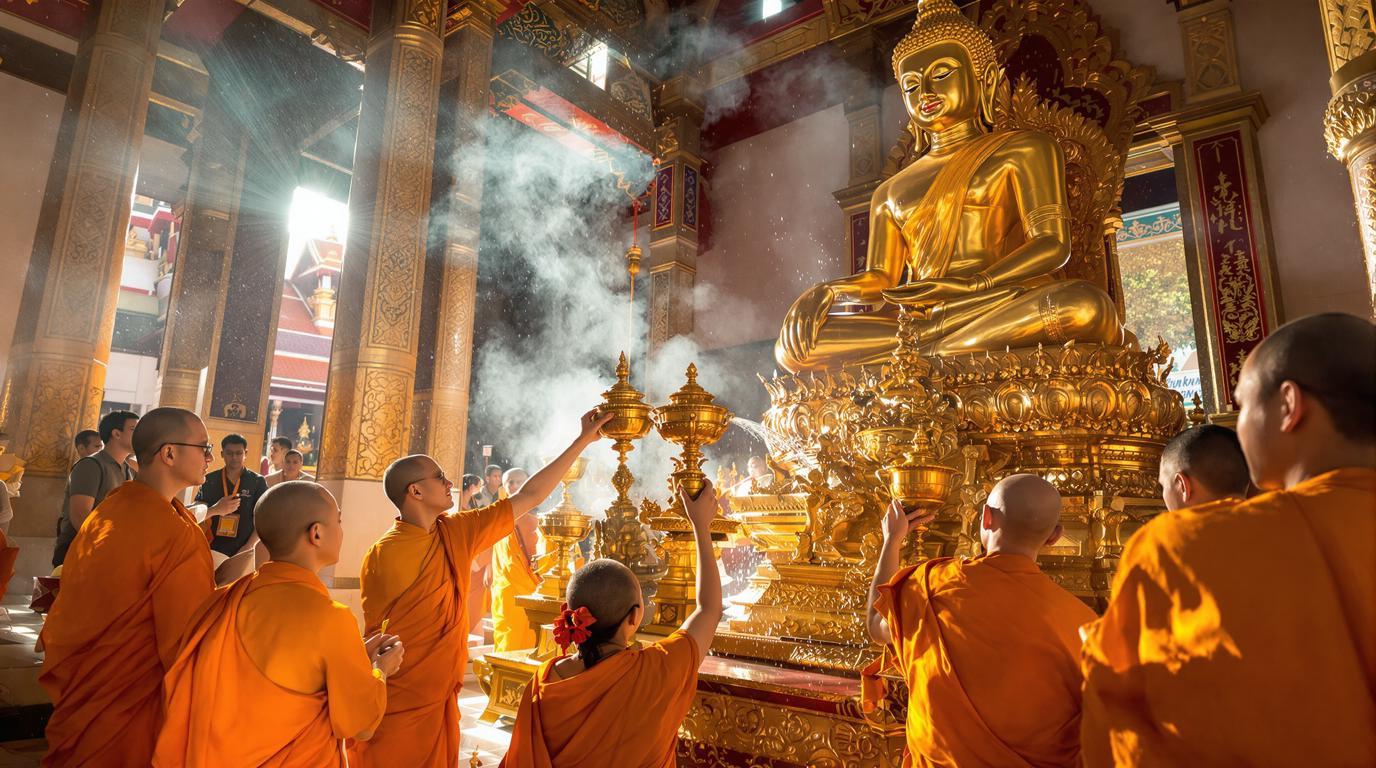Songkran 2025: Thailand’s Water Festival Takes Celebration to New Heights
The ancient celebration reimagined
As April 2025 approaches, Thailand prepares for its most anticipated cultural event of the year. Songkran, Thailand’s traditional New Year celebration, will transform the country into a nationwide water festival from April 13-15, with extended festivities in some regions lasting from April 11-15. This centuries-old tradition, derived from the Sanskrit word “Sankranti,” marks the sun’s movement into a new zodiac sign and symbolizes purification, renewal, and family reunion.
Water fights that unite generations
While tourists flock to popular spots like Bangkok’s Khao San Road for epic water battles, locals know Songkran runs much deeper than playful soaking. The water symbolizes washing away the previous year’s misfortunes and starting anew. In 2025, the Tourism Authority of Thailand plans to balance the raucous water fights with enhanced cultural zones showcasing traditional ceremonies.
“We want visitors to experience both sides of Songkran – the joyful water festivities and the meaningful cultural practices that have sustained our community for generations,” explains Somchai Thiensiri, a cultural preservation specialist in Bangkok.
Sacred traditions amid modern celebrations
Before hitting the streets with water guns, Thais begin Songkran with temple visits, offering food to monks and participating in the Song Nam Phra ritual, where Buddha statues are gently bathed with scented water. The Rod Nam Dam Hua ceremony, where younger generations pour water over elders’ hands to show respect and seek blessings, remains the heart of family celebrations across Thailand.
A festival transformed by climate awareness
For 2025, officials have introduced water conservation measures in response to recent drought concerns. Many cities will restrict water usage to specific hours and encourage participants to use recycled water. This environmental consciousness adds a modern dimension to an ancient celebration, much like the conservation efforts seen in America’s national parks.
Where to experience authentic Songkran
While Bangkok’s water fights draw international attention, seasoned travelers head to Chiang Mai for Thailand’s most authentic Songkran experience. The northern city’s celebrations include a stunning procession of Buddha images through flower-decorated streets. The quiet island of Koh Samui offers a more relaxed celebration that might remind visitors of other untouched Pacific paradises.
Underwater Songkran: A new tradition
In 2025, Koh Tao island will host its second annual Underwater Songkran, where divers celebrate among marine sculptures reminiscent of Cancun’s underwater museum. This innovative celebration combines conservation awareness with traditional festivities as participants clean coral reefs while celebrating underwater.
“We’ve created something special that honors our traditions while protecting our marine environment,” says marine biologist Pranee Sutthirak. “Participants leave with wet clothes and clean oceans.”
A festival that glows with tradition
Evening celebrations in coastal regions feature floating lanterns and illuminated processions that create a magical atmosphere reminiscent of India’s glowing blue shores. In Ayutthaya, the ancient capital, participants celebrate among centuries-old temples where wild deer roam freely, similar to Japan’s Nara Park.
Practical tips for Songkran travelers
For those planning to experience Songkran 2025, book accommodations at least three months in advance. Pack quick-dry clothing, waterproof phone cases, and embrace getting soaked repeatedly. Respect local customs by avoiding revealing clothing, and remember that alcohol and water festivals don’t mix well. The best experiences come from balancing participation in water fights with observing the more reflective cultural traditions.
As Thailand rinses away the old and welcomes the new in 2025, Songkran offers travelers a rare opportunity to participate in living history – where ancient purification rituals meet joyful community celebration, creating memories that, unlike your clothes during the festival, won’t soon dry up.
